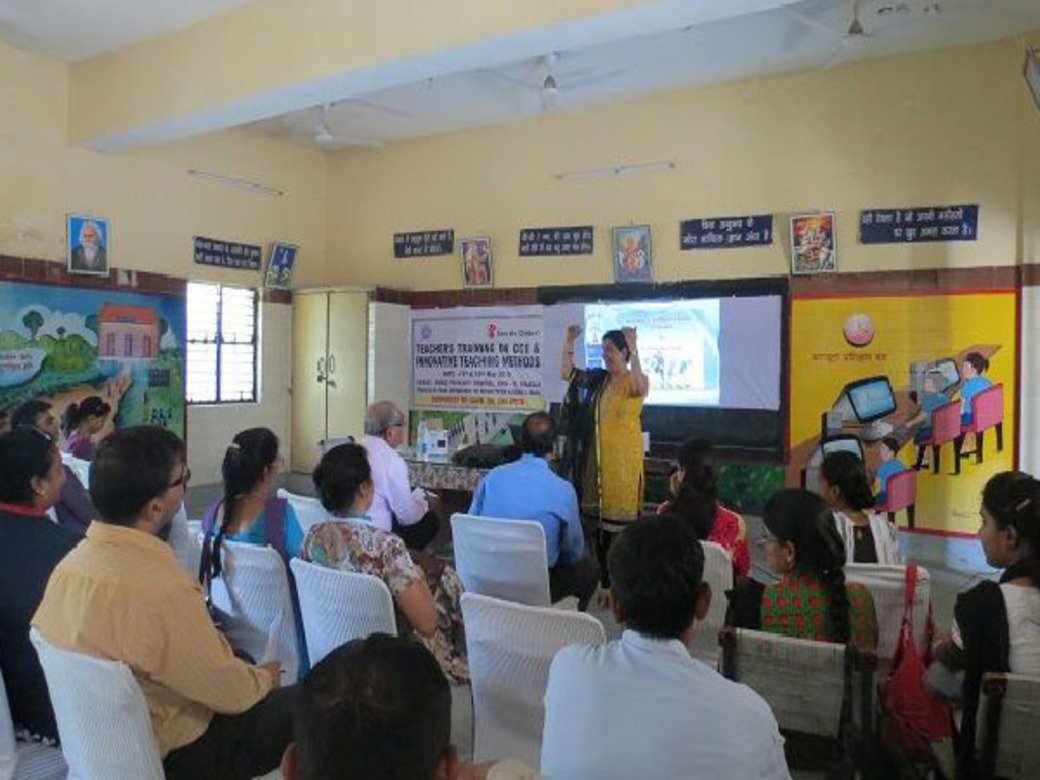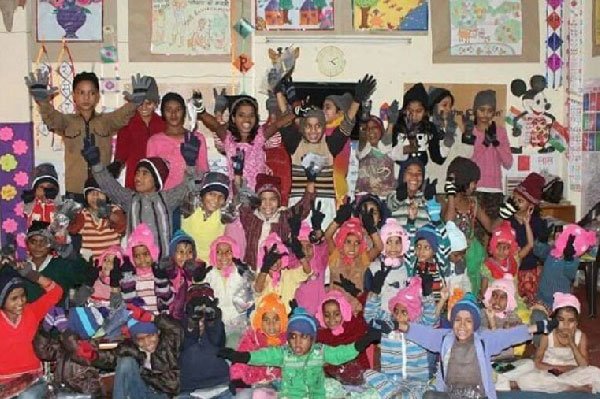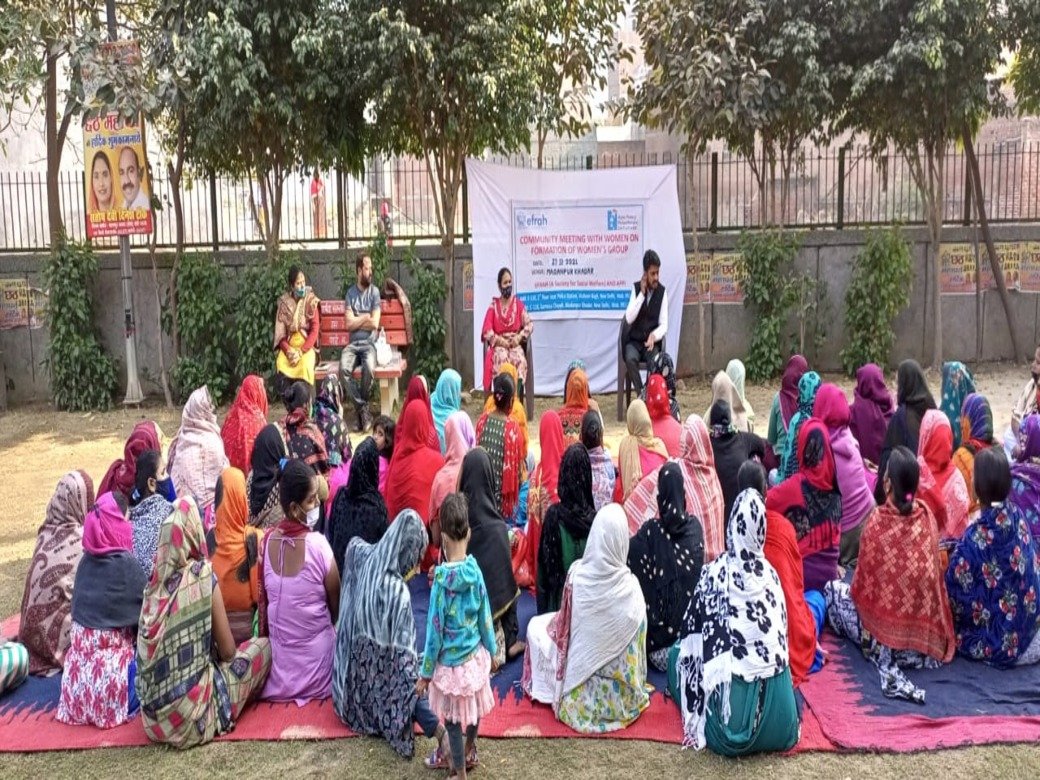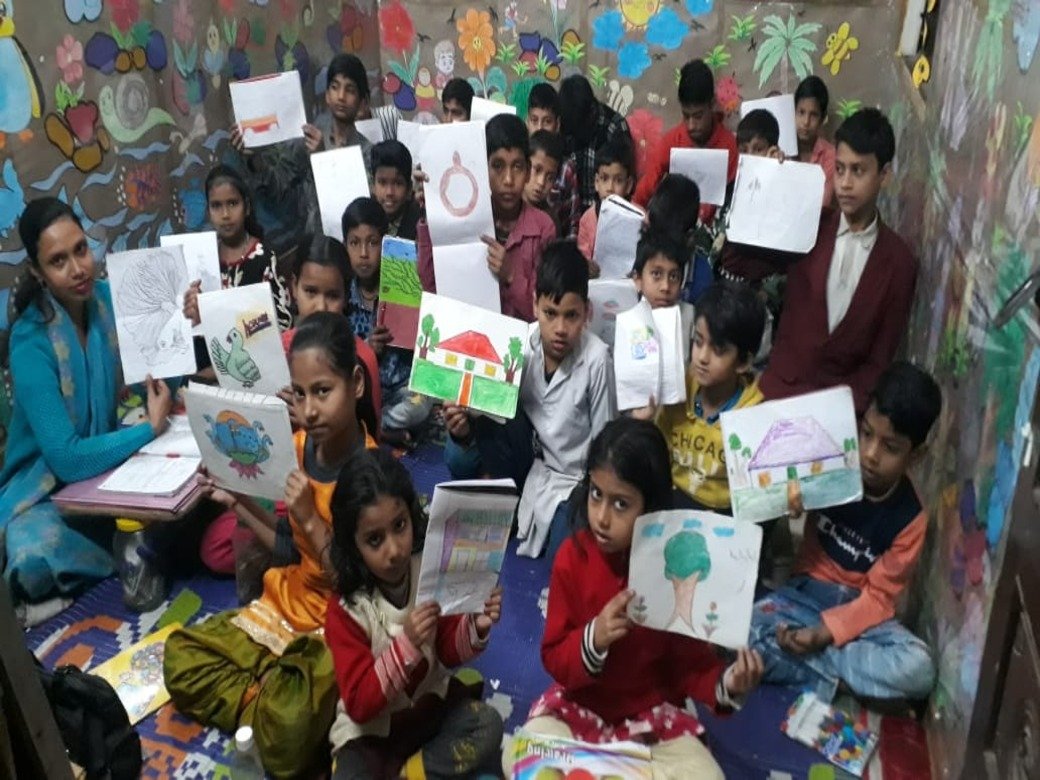
A number of advocacies have been done throughout the year concerning livelihood, education and health related issues. The major areas of advocacy are economic security, sexual and reproductive health rights, implementation of Right to education and gender responsive security system. During the course of the advocacy work, the EFRAH members able to convince the area counselor, traffic commissioner, area MLA and MP for the works like health centers, school drop -out cases especially girls, local commute system (DTC services) etc.

The networking is one of the major areas of working as communities have a number of needs and requirements. it required for building, maintaining and leveraging professional contacts in the fields and connects the community in mainstream. EFRAH do this work on regular basis with local health centers, mohalla clinic, training centers and schools. EFRAH staffs connect the community to these institutions where the children admitted and attend on daily basis and avail the health related facilities. At the local level, there are self help groups of women who not only work for financial security but also spread different benefit schemes in their community and connect the scheme to the community. An effective network established with training centers where women, girls and youth are connected for better and effective training as well as placements.
EFRAH does campaign of social issues like women empowerment, HIV/AIDS awareness and increasing crimes on roads. From time to time, the gender equality, girl’s education and drug de- addiction campaigns are launched to aware people on pros and cons of the aspect. EFRAH team leaded to Jantar Mantar in order to raise their voice against the brutal rape cases occurs every now and then and it is quite often that the criminals don’t get punishment as there is no rapid action method to punish such criminals. Similarly, campaign like environmental issues, cleanliness and hygiene, the message is spread that they need to act now and end pollution in all its forms. On world environment Day, there was rallies in locality to save the earth by not using polythene and plastic bags instead better to use jute bags, maintain cleanliness in surroundings and hygienic to spend a healthy life The campaign drive in 295 villages has been launched for school enrolment & retention and girl child education and other urban areas of Delhi and Noida.

EFRAH involve in capacity building work in many ways. It builds capacity to community women through self help groups on their livelihood. The adolescent girls are given soft skill and communication skill which help them for better employment opportunities and retention in the job wherever placed. Teachers are trained for innovative, skillful and play way method of teaching children during non-formal and balwari teaching. Overall capacity in the community projects are built on gender equality, addressing sexual harassment cases and legal compliances. The Haryana chapter of EFRAH involves in capacity building of local people on MANREGA awareness and employability opportunity of 100 days and 711 teachers are capacitated on subject specific pedagogy (focus on mathematics and language), cooperative learning and inclusive education, child centric and activity based classroom transaction processes.

EFRAH is committed to secure rights to individual by providing assistance and advice. The Mahila Panchayat is very active in the locality, their disputes are being resolved, and the success rate of this malila panchayat is more than 60%. Schools have been sensitized on various sections of Right to Education (RTE), Act 2009 and admissions of children are conducted as per the RTE Act norms. In schools, school management committee have been formed with parents of children are active members as the Act describes, To secure Rights of children and actual current services, the social audit in 10 SDMC primary schools have been conducted which include the aspects of number of teaching staff, availability of drinking water, sanitation and school guards on main gate, playground and status and members of school management committee. The main findings were shared with school authorities to address.

More than 40,000 children are direct beneficiaries of EFRAH within which 18,000 children were mainstreamed into different formal schools to start their formal.Our Constitution fathers did not intend that we just set up hovels, put students there, give untrained teachers, give them bad textbooks, no playgrounds, and say, we have complied with Article 45 and primary education is expanding…They meant that real education should be given to our children between the ages of 6 and 14.” – M. C. Chagla – Education Minister of India, 1963-66